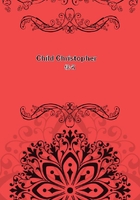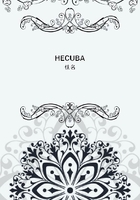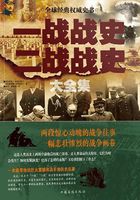A few days later, the bill of pains and penalties against Duncombe passed the Commons. It provided that two thirds of his enormous property, real and personal, should be confiscated and applied to the public service. Till the third reading there was no serious opposition. Then the Tories mustered their strength.
They were defeated by a hundred and thirty-eight votes to a hundred and three; and the bill was carried up to the Lords by the Marquess of Hartington, a young nobleman whom the great body of Whigs respected as one of their hereditary chiefs, as the heir of Devonshire, and as the son in law of Russell.
That Duncombe had been guilty of shameful dishonesty was acknowledged by all men of sense and honour in the party to which he belonged. He had therefore little right to expect indulgence from the party which he had unfairly and malignantly assailed.
Yet it is not creditable to the Whigs that they should have been so much disgusted by his frauds, or so much irritated by his attacks, as to have been bent on punishing him in a manner inconsistent with all the principles which governments ought to hold most sacred.
Those who concurred in the proceeding against Duncombe tried to vindicate their conduct by citing as an example the proceeding against Fenwick. So dangerous is it to violate, on any pretence, those principles which the experience of ages has proved to be the safeguards of all that is most precious to a community.
Twelve months had hardly elapsed since the legislature had, in very peculiar circumstances, and for very plausible reasons, taken upon itself to try and to punish a great criminal whom it was impossible to reach in the ordinary course of justice; and already the breach then made in the fences which protect the dearest rights of Englishmen was widening fast. What had last year been defended only as a rare exception seemed now to be regarded as the ordinary rule. Nay, the bill of pains and penalties which now had an easy passage through the House of Commons was infinitely more objectionable than the bill which had been so obstinately resisted at every stage in the preceding session.
The writ of attainder against Fenwick was not, as the vulgar imagined and still imagine, objectionable because it was retrospective. It is always to be remembered that retrospective legislation is bad in principle only when it affects the substantive law. Statutes creating new crimes or increasing the punishment of old crimes ought in no case to be retrospective.
But statutes which merely alter the procedure, if they are in themselves good statutes, ought to be retrospective. To take examples from the legislation of our own time, the Act passed in 1845, for punishing the malicious destruction of works of art with whipping, was most properly made prospective only. Whatever indignation the authors of that Act might feel against the ruffian who had broken the Barberini Vase, they knew that they could not, without the most serious detriment to the commonwealth, pass a law for scourging him. On the other hand the Act which allowed the affirmation of a Quaker to be received in criminal cases allowed, and most justly and reasonably, such affirmation to be received in the case of a past as well as of a future misdemeanour or felony. If we try the Act which attainted Fenwick by these rules we shall find that almost all the numerous writers who have condemned it have condemned it on wrong grounds.
It made no retrospective change in the substantive law. The crime was not new. It was high treason as defined by the Statute of Edward the Third. The punishment was not new. It was the punishment which had been inflicted on traitors of ten generations. All that was new was the procedure; and, if the new procedure had been intrinsically better than the old procedure, the new procedure might with perfect propriety have been employed. But the procedure employed in Fenwick's case was the worst possible, and would have been the worst possible if it had been established from time immemorial. However clearly political crime may have been defined by ancient laws, a man accused of it ought not to be tried by a crowd of five hundred and thirteen eager politicians, of whom he can challenge none even with cause, who have no judge to guide them, who are allowed to come in and go out as they choose, who hear as much or as little as they choose of the accusation and of the defence, who are exposed, during the investigation, to every kind of corrupting influence, who are inflamed by all the passions which animated debates naturally excite, who cheer one orator and cough down another, who are roused from sleep to cry Aye or No, or who are hurried half drunk from their suppers to divide. For this reason, and for no other, the attainder of Fenwick is to be condemned. It was unjust and of evil example, not because it was a retrospective Act, but because it was an act essentially judicial, performed by a body destitute of all judicial qualities.
The bill for punishing Duncombe was open to all the objections which can be urged against the bill for punishing Fenwick, and to other objections of even greater weight. In both cases the judicial functions were usurped by a body unfit to exercise such functions. But the bill against Duncombe really was, what the bill against Fenwick was not, objectionable as a retrospective bill. It altered the substantive criminal law. It visited an offence with a penalty of which the offender, at the time when he offended, had no notice.














